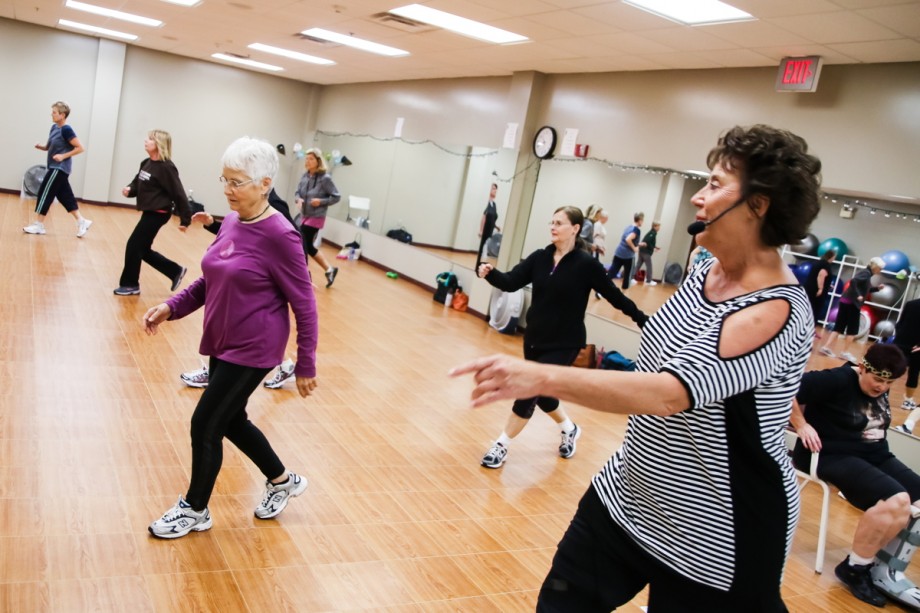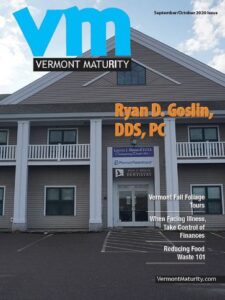
“Just do it,” is the Nike slogan. That’s easier said than done for people who don’t have much experience being active. Below are some recommendations from trainers and nutritionists for those who want to embark on a healthier lifestyle.
Sherri George, a coach, a trainer and consultant in South Burlington, believes the first key to a healthier, more active lifestyle is making the decision yourself to get in shape. Fitness programs don’t work for those who are pushed by others. A second key is not doing too much at once. George said she has seen people undone by trying to start in too dramatic a fashion, adding that the notion of joining a health club or starting a structured workout program may be too much of a barrier for some people.
George recommends that those who are inactive start by making a list of the things they enjoy. For someone who has fun getting together with friends and has a lunch group that meets twice a week, George recommends changing one of those lunch dates into a more active event like going for a walk or bowling. Recognizing that this involves buy-in from the entire group, George has some solo ideas, as well. Someone with a favorite daily TV program can improve his or her health simply by getting up and moving during the commercials. “Sometimes you have to start small,” she said, “but if you’re successful in your small goals you can build on that.”
George said a good next step is to buy a DVD for yoga, stretching, dance, or anything else a person enjoys and working out once or twice a week. George describes this as having SMART goals: Specific, Measurable, Actionable, Realistic, and completable within a certain time frame.
For those ready to move on to a more structured work-out, a class specifically targeted to the mature crowd might be a good next step. Brian Rich has been teaching a senior fitness class at the Edge in Essex for seven years. The class is three days a week for an hour’s duration and some participants are such fans that they have attended for several years. The average age is 70, but one student is approaching the 90-year-mark. Rich thinks it’s important to work out as a group, rather than just on an individual basis. “It’s a good social thing to do,” he said. “Besides, there is better energy in a group and people are more committed to a regimen if they know there are others who expect them to be there.”
Rich stresses that those just starting a workout regimen should begin conservatively and should concentrate on good form, after which it becomes easier to work out for a longer period of time and use heavier weights. He recommends breathing and posture exercises as aides to achieving proper form, which will also help prevent injuries. Rich believes people should exercise every day, although he stressed that the activity doesn’t have to be vigorous. He cautioned that seniors in particular should stretch their muscles before exercise, and the stretching should be active (also called functional) rather than passive stretching which involves sitting on the floor. While fresh air is always best and can also improve a person’s mental state, he noted that outdoor activity can be restricted by weather. Very cold temperatures can cause a person to inhale too quickly, which is harmful to the lungs, and very warm weather can bring on heatstroke.
Rich said the biggest hurdle for those starting an exercise regimen is the fear of doing something new. “People get set in a routine and it’s hard to break out of that,” he said. “Especially in the beginning, this is unchartered territory.”
Rich strongly encourages those who are starting out to seek the advice of a health professional and then begin their exercise under the tutelage of an expert. “Guidance is essential,” he said. “If you’re doing it right, it’s good for you; if you’re doing it wrong, you can hurt yourself.”
Kay Tran, a Registered Dietician with Northwestern Medical Center, suggests keeping a food log to monitor caloric intake. Tran recommends having at least three meals a day, but ensuring that the portion sizes are reasonable. She noted that those who live alone often lose interest in preparing meals, and often eat pre-cooked foods, which increases their sodium intake (especially bad for those with hypertension) and often decreases their intake of fresh fruits and vegetables. Tran stressed that everyone should eat three to five portions of vegetables each day and a piece of fruit with every meal, adding that for those without ready access to a store, frozen vegetables still have nutritional value (canned varieties are low on roughage).
Tran said it is wrong to believe that you should not eat red meat. On the contrary, a small portion of lean red meat (3 ounces or the size equivalent of a deck of cards) is much healthier than fattier protein like peanut butter. Another common misconception is that fruit juice is healthy; most juice has the same sugar content as soda. Instead, drink seltzer and flavored waters that have artificial sweeteners. Additionally, Tran cautions that most granola bars, often mistaken as a healthy snack, are no more nutritious than a cookie.
One mistake often made is to skip breakfast in the interest of time or calories. Tran said that getting enough roughage and fiber is very important. Additionally, adding skim or 1 percent fat milk will help with calcium intake and increase bone strength.
Once you start an exercise regimen, Tran said you may find you are less hungry. She suggests formulating a schedule for eating to avoid using psychological or time triggers. Tran cautioned against packaged rice and pasta, which are high in sodium and more expensive, suggesting baked potatoes and whole grains like bulgur as alternatives which can also be cooked in bulk.
For those dependent on sugars and sweets, Tran suggests artificially flavored yogurt or plain yogurt with maple syrup instead of cookies or cake. Cheese should only be consumed in small quantities because of the saturated fat content. However, Tran noted that Cabot Cheese has made great strides in creating tasty, reduced fat products.
Although prepared foods are almost always less nutritious than their natural counterparts, Tran said dried, canned beans can be quite healthy. Nuts are a nutritious snack, but only in small quantities. Tran cautioned that most nuts have at least ten calories so rather than consume 20 nuts, eat five to seven, accompanied by a piece of fruit.
So there you have it. Start slow, start smart, but start. Eating better and exercising more often are the keys to a healthier lifestyle.
This article was contributed by Phyl Newbeck.
 Related Articles & Free Subscription
Related Articles & Free Subscription
10 Benefits of Weightlifting for Age-Related Muscle Loss for Seniors
A Little Exercise to Do Before You Join a Gym
Exercisers in Their 40s and 50s Should ‘Agercise’ Their Workouts






Comment here